What are the key considerations when selecting an iron casting service provider for aerospace OEM parts?
Know About Aerospace OEM Parts and Iron Casting
The aerospace industry is synonymous with precision and innovation, a domain where every component, no matter how small, is crucial to the overall functionality and safety of the aircraft. Iron casting plays a pivotal role in producing these OEM parts, offering the durability and strength required for the demanding conditions of flight. Selecting the right iron casting service provider is a decision that can significantly influence the quality and reliability of these vital components.
Understanding the Aerospace OEM Landscape
Aerospace OEM parts vary from the smallest fasteners to large fuselage components, all requiring the same attention to detail during their creation. Iron casting for aerospace applications is not just about pouring molten metal into a mold; it involves a meticulous process of design, material selection, and finishing that adheres to the strict specifications set by aerospace authorities.
The Role of Customized Iron Casting in Aerospace
Customized iron casting is at the forefront of aerospace component manufacturing. Service providers that can deliver personalized casting solutions enable OEMs to achieve the bespoke designs necessary for unique aerospace applications. This customization is not limited to shape and size but also extends to the material properties, where different iron alloys are selected to match the specific performance requirements of each part.
The Importance of Material Quality in Iron Castings
Selecting the Right Iron Alloy
The quality of the material used in iron castings directly impacts the performance and longevity of aerospace OEM parts. Providers must offer a variety of iron alloys, such as gray iron, ductile iron, or malleable iron, each with its own set of characteristics that make it suitable for different aerospace applications.
Ensuring Durability and Performance
In the context of aerospace, durability and performance are non-negotiable. The iron casting process must ensure that the final product can withstand extreme temperatures, pressure changes, and mechanical stress. This is where the expertise of the service provider in material science becomes invaluable, as they must be able to guarantee that the material quality meets or exceeds industry standards.
Precision and Accuracy Requirements for Aerospace Components
The aerospace industry is unforgiving when it comes to the precision and accuracy of its components. Iron casting for aerospace OEM parts is a high-stakes game where even the slightest deviation from the required specifications can have significant consequences.
Engineering to Exacting Tolerances
Engineering iron castings for aerospace applications means adhering to exacting tolerances that can be as minute as a few micrometers. Such precision ensures that each component fits flawlessly within the complex assemblies of an aircraft, maintaining the integrity and functionality of the machine.
Customized Casting for Perfect Component Fit
The ability to customize iron castings is essential for achieving the perfect fit. It involves precise control over every stage of the casting process, from initial mold design to the final machining of the cast part. Providers must utilize advanced technologies such as 3D printing for molds and CNC machining to achieve the level of accuracy that aerospace components demand.
Certifications and Standards Compliance
Iron casting for aerospace OEM parts is heavily regulated, and compliance with international standards and certifications is not optional. These certifications are indicators of a provider’s ability to produce components that are safe, reliable, and of high quality.
Adhering to Aerospace Quality Management Systems
Compliance with quality management systems like ISO 9001 and the aerospace-specific AS9100 standard is essential. These standards ensure that the provider has a systematic approach to managing quality and that they can consistently meet customer and regulatory requirements.
The Importance of NADCAP Accreditation
For certain processes such as welding, chemical processing, and non-destructive testing, NADCAP accreditation becomes relevant. It is a specialized certification that shows a provider’s commitment to meeting the stringent standards of the aerospace industry, particularly in the specialized processes that are critical to the integrity of aerospace components.
Experience with Aerospace OEM Part Production
A track record of experience in the aerospace industry is a significant factor when selecting an iron casting service provider. It speaks to the provider’s understanding of the unique challenges and requirements of the industry.
Proven Expertise in Aerospace Component Manufacturing
Providers with a history of producing aerospace components bring a depth of expertise and an established reputation. They are likely to have a more nuanced understanding of the aerospace sector’s needs and the challenges that come with meeting those needs.
Leveraging Past Successes for Future Innovations
A service provider’s past successes can be a harbinger of future performance. Those who have successfully navigated complex aerospace projects are better equipped to innovate and adapt to the evolving demands of the industry.
Technological Capabilities for Complex Castings
In the field of aerospace OEM parts manufacturing, leveraging the latest technological advancements is not just advantageous—it’s imperative. Service providers must be at the cutting edge of iron casting technology to deliver components that push the boundaries of what’s possible.
Advanced Technologies for Enhanced Precision
The use of advanced technologies in the casting process is a game-changer. Techniques such as 3D printing for sand molds, precision simulation, and digital modeling contribute to achieving enhanced precision in iron castings. These technologies allow for the creation of components with complex geometries and internal features that were once considered impractical, if not impossible.
Customized Solutions with High-Tech Machining
High-tech machining capabilities allow for customized solutions that meet the unique demands of aerospace OEM parts. The ability to machine intricate details post-casting is crucial, and providers must have the equipment and expertise to carry out such precision work, often on a customized, case-by-case basis.
Lead Time and Flexibility in Production
The aerospace industry operates within tight deadlines, and the ability to deliver high-quality castings quickly is a significant competitive advantage for an iron casting service provider.
Streamlining Production for Rapid Turnaround
A streamlined production process is essential for meeting the demanding lead times of aerospace OEM parts. Service providers must have efficient, well-organized production lines capable of rapid turnaround without compromising the quality of the iron castings.
Adapting to Changing Demands with Agile Manufacturing
Flexibility and agility in manufacturing are crucial for adapting to the ever-changing demands of the aerospace industry. Providers must be able to adjust their production schedules and processes quickly in response to their clients’ evolving needs.
Quality Control Measures
Quality control is the cornerstone of aerospace manufacturing. Iron casting service providers must have stringent quality control measures in place to ensure that every component meets the industry’s high standards.
Comprehensive Testing for Uncompromised Quality
From dimensional inspections to material testing, comprehensive quality control processes are vital to ensure that each casting is free from defects and meets all required specifications. Providers must employ a variety of testing methods, including non-destructive testing techniques, to validate the integrity of their castings.
Continuous Improvement for Optimal Performance
A commitment to continuous improvement in quality control measures is vital. Providers should regularly review and refine their quality control processes to keep pace with the technological advancements and evolving standards of the aerospace industry.
Supply Chain Reliability and Logistics Support
The robustness of a supply chain can often be the defining factor in the fast-paced aerospace industry, where every second counts and delays can lead to significant financial losses or safety risks.
Ensuring a Dependable Supply Chain
A dependable supply chain is essential for iron casting service providers, particularly in the aerospace sector. Providers must demonstrate a track record of reliable material sourcing, inventory management, and an ability to handle unexpected disruptions without impacting the client’s operations.
Streamlined Logistics for On-Time Delivery
Streamlined logistics are not just about delivering on time; they’re about precision timing and the flexibility to adapt to clients’ evolving needs. An iron casting service provider must have established logistics protocols that ensure each part arrives at its destination in the shortest time possible and in perfect condition.
Cost-Effectiveness and Value Engineering
In an industry where the costs of design and production can escalate quickly, providing cost-effective solutions without compromising quality is a delicate balance that iron casting service providers must achieve.
Balancing Quality with Affordability
Balancing the highest quality standards with affordability is a challenge. Service providers need to employ value engineering practices to reduce costs where possible while maintaining the integrity and performance of the aerospace components they produce.
Innovative Approaches to Reduce Production Costs
Innovative approaches to production, such as employing waste-reducing manufacturing techniques or optimizing design for more efficient material usage, can significantly reduce costs. Providers must continuously seek out and implement these innovations to offer competitive pricing to their clients.
After-Sale Service and Support
After-sale service and support are what often distinguishes an average service provider from a great one. In the aerospace industry, this support is critical due to the long lifecycles and high stakes involved in each component.
Offering Comprehensive After-Sale Services
Comprehensive after-sale services, including troubleshooting, technical support, and part replacement, are vital. A service provider must have a dedicated support system in place to address any issues that may arise after the delivery of the castings.
Building Long-Term Relationships Through Support
Building long-term relationships with clients through robust after-sale support can lead to repeat business and recommendations—a key to success in the aerospace industry.
Sustainability and Environmental Compliance
Sustainability is no longer an option but a requirement in modern manufacturing, especially in industries like aerospace, which are under increasing scrutiny for their environmental impact.
Implementing Eco-Friendly Practices
Implementing eco-friendly practices in iron casting processes is crucial. This includes everything from using recycled materials to employing energy-efficient machinery and reducing emissions throughout the production process.
Meeting Environmental Regulations
Meeting stringent environmental regulations is not just about compliance; it’s about taking responsibility for the planet. Service providers must show that they are not only meeting current regulations but are also prepared for future environmental challenges.
Case Studies: Successful Aerospace OEM Iron Castings
Case studies of successful projects can provide valuable insights into a service provider’s capabilities. They offer tangible evidence of their ability to meet the complex demands of aerospace OEM part production.
Learning from Past Successes
Each case study is a learning opportunity. They allow potential clients to see how the provider has navigated challenges in the past and how they might approach future projects.
Demonstrating Proven Competence
Through case studies, service providers can demonstrate their proven competence in delivering quality iron castings for aerospace applications, showcasing their problem-solving skills and ability to innovate.
Tips for Communicating with Iron Casting Service Providers
Effective communication is the cornerstone of any successful partnership, especially when dealing with the complexities of aerospace OEM parts production. Clear, concise, and frequent communication can ensure that projects stay on track and meet all necessary criteria.
Establishing Clear Communication Channels
It’s imperative to establish clear communication channels from the outset. This means determining the main points of contact, preferred communication methods, and regular update schedules to ensure everyone is on the same page throughout the production process.
Detailing Specifications and Expectations
Providing detailed specifications and clear expectations is essential to avoid misunderstandings. This includes technical requirements, timelines, and quality standards, all of which should be documented and agreed upon before production begins.
Conclusion: Integrating Key Considerations in Decision-Making
Selecting an iron casting service provider for aerospace OEM parts is a multifaceted decision that requires careful consideration of each provider’s capabilities and how they align with the specific needs of the project.
Weighing All Factors for Informed Decision-Making
An informed decision takes into account all the factors discussed—from the quality of materials and precision of castings to certifications, experience, technological capabilities, and beyond. It’s about weighing the strengths and potential weaknesses of each provider to determine the best fit.
The Partnership Approach to Iron Casting Services
Ultimately, selecting a service provider should be about forming a partnership. It’s a collaborative relationship that thrives on mutual trust, shared goals, and a commitment to excellence in producing aerospace OEM parts that meet the highest standards of quality and reliability.

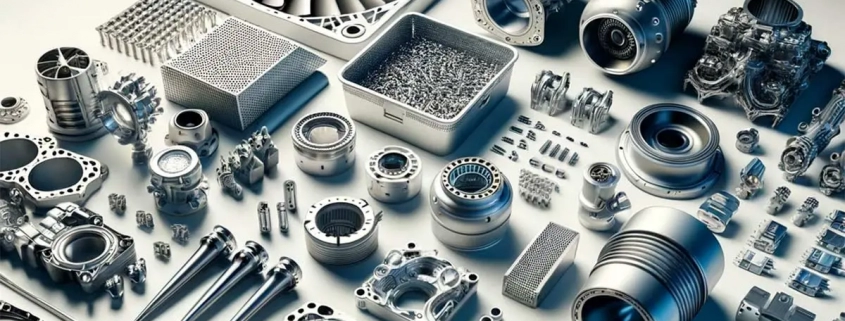
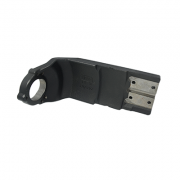
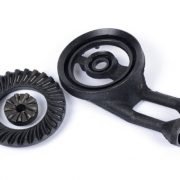
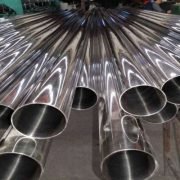
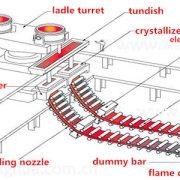
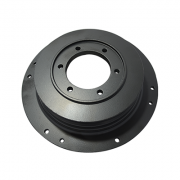
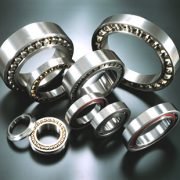


Leave a Reply
Want to join the discussion?Feel free to contribute!